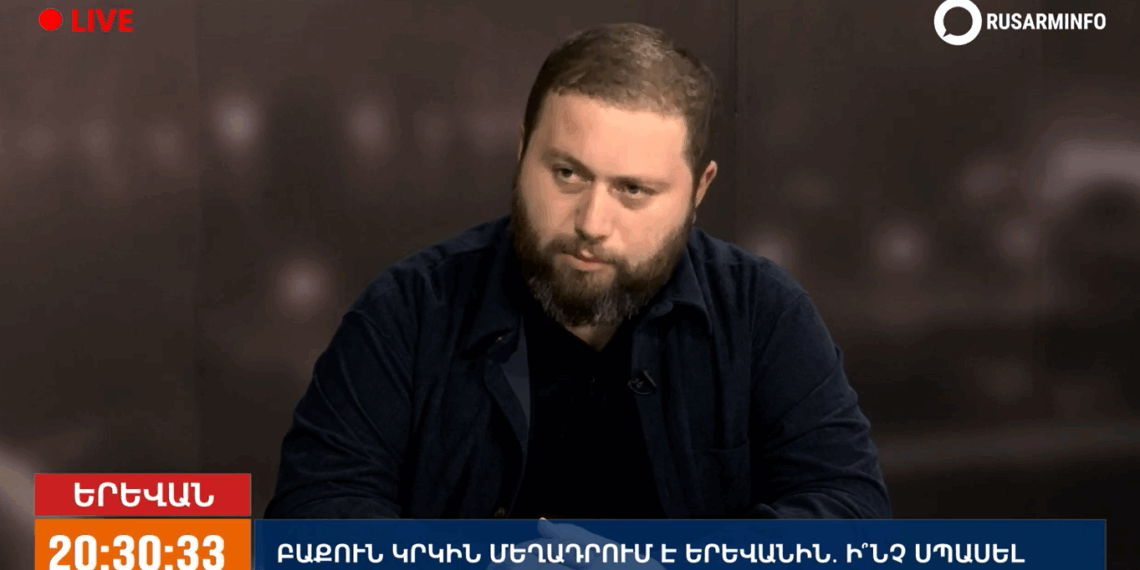YEREVAN (Realist English). Armenia has lost its foreign policy independence and now finds itself irrelevant to both Washington and Moscow, according to Sarkis Tsaturyan, founder of the Armenian national movement Ashkharazhokhov, in a wide-ranging interview that sharply criticized US and Israeli regional strategies and called for a strategic realignment with Iran.
On alliance with Iran
Tsaturyan argued that one of the gravest mistakes of all post-Soviet Armenian governments has been the failure to build a strategic partnership with Iran, despite multiple overtures from Tehran.
“We never developed a real strategic dialogue with Iran,” he said. “Every Armenian leader since the first president made sure Tehran withdrew from engagement with us.”
According to Tsaturyan, Iranian officials have repeatedly offered security and strategic cooperation formats, only to be ignored or betrayed by successive Armenian administrations.
“If you speak one-on-one with influential Iranians, they will show you the list of proposals they made — and how we either rejected them or broke our commitments.”
He emphasized that, given shifting alliances — including the possible loss of US support for Syrian and Iraqi Kurds — Armenia must urgently coordinate with Tehran to protect mutual allies and stabilize the region.
On US and Israeli influence
Tsaturyan accused the Trump administration of greenlighting the war against Artsakh and Armenia, not out of hostility toward Armenians but because of Armenia’s lack of geopolitical weight.
“Trump’s administration gave the green light for war — not because they hate Armenians, but because we lack subjectivity. To them, we are nothing.”
He warned that the US views Armenia as a tool in its broader campaign to pressure Iran, with no long-term commitment to Armenian interests.
“They openly admit it — we are just leverage against Iran. For them, Ukraine and Armenia are instruments to destabilize rival centers of power.”
He also accused Israeli Prime Minister Benjamin Netanyahu’s circle of wielding disproportionate influence over US policy:
“The influence of Netanyahu and his networks in Washington — through Jewish lobbying circles — is obvious. The US doesn’t truly fear Iran’s nuclear weapons. What they fear is Iran’s economic rise, enabled by its nuclear technology.”
On Armenia’s current standing
Tsaturyan offered a blunt assessment of Yerevan’s political clout:
“Our influence in Moscow is zero — because we don’t work. Israel works in Washington and gets what it wants.”
He warned that Armenia is caught between global powers vying to contain Iran, and risks being dragged into a conflict that is not its own. The US and UK, he claims, seek to block Iran’s emergence as a regional logistics hub, a strategy that automatically implicates Armenia.
“We are standing on the edge of a cliff. This is now a question of the physical survival of Armenians on their land. I am personally ready to do whatever it takes to ensure our people’s right to live, raise children, and build future generations.”


















